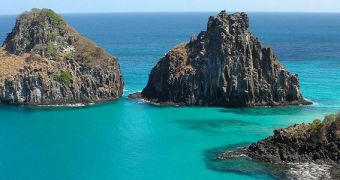Finnish investigators with the University of Helsinki have discovered in a new study of 20 islands along the coasts of the country that a small available surface area will not only equate to reduced biodiversity, but also to shorter food chains.
The most significant implication this study brings to the table is that plant and animals species, regardless of their size, may interact differently with each other in smaller, island habitats, than in the wild. Interestingly, the study found very few top predators in small habitats or ecosystems.
In fact, researchers say, the first tiers of the food chains were the first to go, indicating that biodiversity needs to reach a certain level of development and complexity to support apex predators, e! Science News reports. The work is explained further in the latest issue of the journal Ecography.
“What we show is that the decrease in species richness with decreasing area gets steeper when you climb up the food chain. That means that when you move towards smaller island size, you run out of top predators before you run out of intermediate predators, and that you lose the last plant-eaters before you lose the last plant,” says professor Tomas Roslin, the leader of the study.

 14 DAY TRIAL //
14 DAY TRIAL //